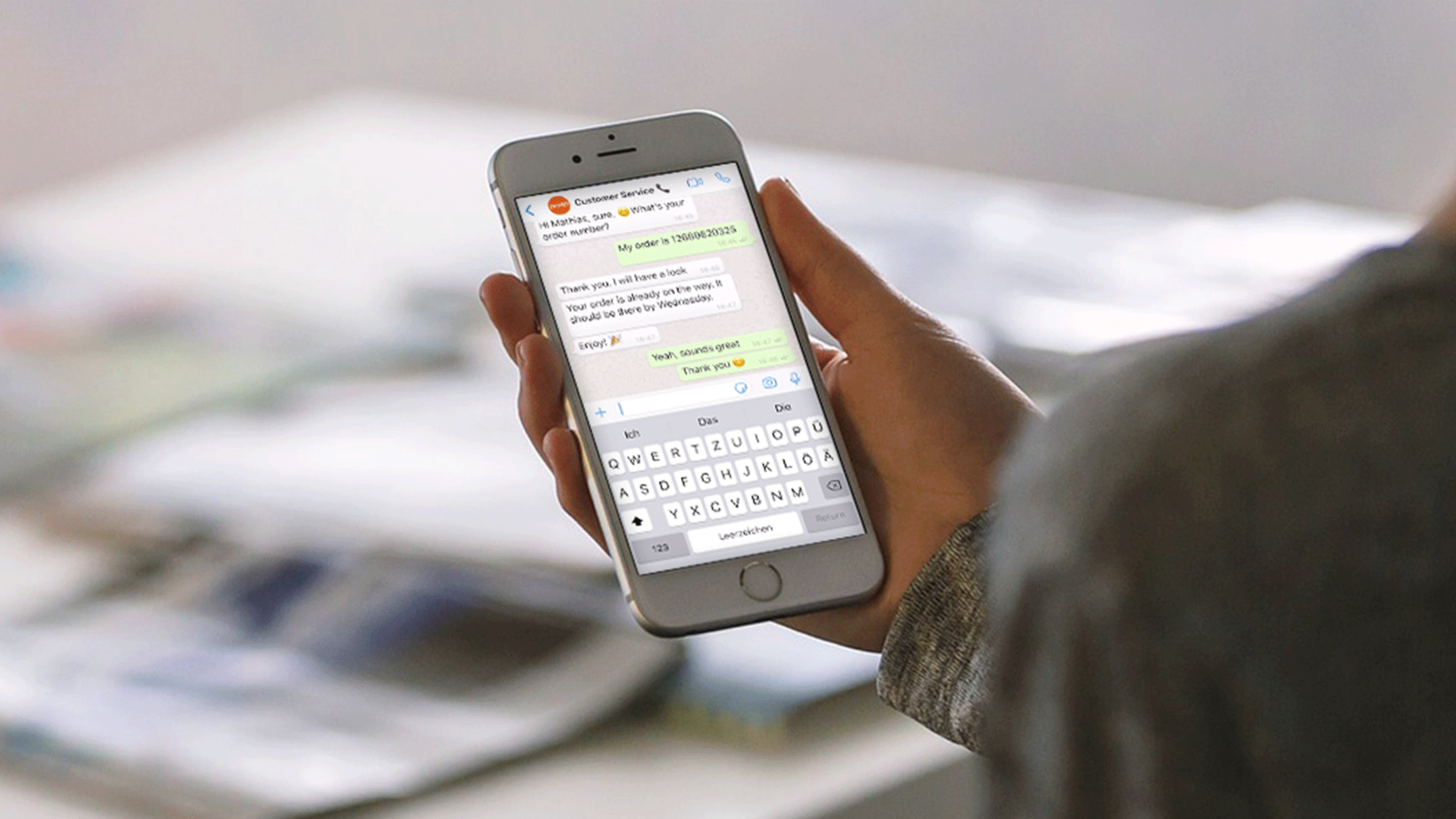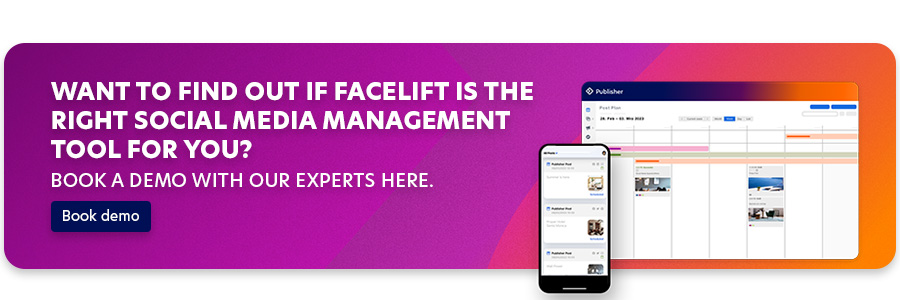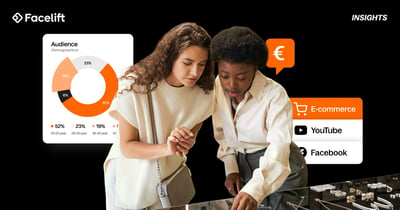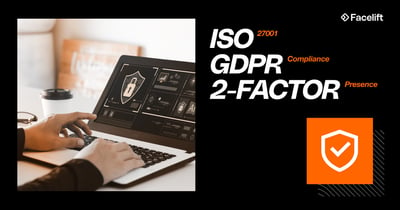In the digital age, it's important to find innovative ways to reach your audience. WhatsApp, one of the world's leading instant messaging platforms, has established itself not only as a way for friends to communicate, but also as a powerful tool for businesses.
The numbers speak for themselves: open rates of 95% and CTRs of up to 60%, combined with over 100 billion messages per day, offer a unique opportunity to get your message directly into the pockets and hearts of your target audience.
WhatsApp's story is fascinating: within a decade of its founding in 2009, the company became the world's most used messaging service. Its acquisition by Facebook (now Meta) for the then-record sum of $19 billion further strengthened its market position.
Today, WhatsApp has 2 billion monthly users worldwide and offers not only a high usage rate, but also the opportunity to stand out in the ever-growing sea of communication. Discover with us how to strengthen your customer loyalty.
What are the benefits of WhatsApp as a marketing channel?
WhatsApp as a marketing channel offers a number of outstanding features that set it apart from other platforms:
- One important aspect is the extremely positive communication environment. Because WhatsApp serves as a primary platform for personal conversations, it often enjoys a higher level of trust among users than other marketing channels. This trust can reinforce the brand message and create a solid foundation for successful interactions.
- The unique nature of personal communication on WhatsApp is also important. The private nature of chats allows for a deeper and more personal connection between businesses and customers. Businesses have the ability to respond individually to the needs, questions and concerns of their target audience, increasing customer loyalty and satisfaction.
- Another benefit of WhatsApp as a marketing channel is real-time communication. Businesses can communicate directly with their customers in real time, allowing for quick answers to questions, immediate assistance with problems, and the immediate provision of offers or information. This immediate interaction can increase customer satisfaction and improve the flow of communication.
- The ability to share multimedia content makes WhatsApp particularly attractive for marketing. Businesses can not only send text messages, but also share images, videos, audio and locations. This opens up a wide range of opportunities to create creative and engaging marketing content that effectively engages customers.
- In addition, WhatsApp communication is opt-in. Customers must actively opt-in to be contacted by a business via WhatsApp. This ensures that communication is based on consent and that engagement and interactions are authentic. This principle promotes higher quality communication and reduces user disruption.

What has become indispensable in the private sphere is also raising expectations in professional communication: Consumers want to interact with businesses as quickly, conveniently, and efficiently as they do in their personal lives. In a study initiated by Meta, 65 percent of respondents said they would rather contact companies via Messenger than call customer service. So as letters, emails and phone calls are increasingly replaced by live messengers, businesses need to tailor their customer service as closely as possible to the needs of their customers. One way to do this is to meet consumers where they are, in a medium they trust that is popular and established around the world
What is WhatsApp - Messenger or Social Media?
WhatsApp is often referred to as an instant messaging platform and has some similarities to social media, but is usually not directly classified as a such. There are several reasons for this distinction:
- WhatsApp is focused on a private environment. Users interact on WhatsApp primarily through private, direct communication in 1:1 chats or groups. The content is not designed for visibility, but rather for personal exchange. These are usually real contacts of the user, which promotes the confidentiality and authenticity of the interactions.
- WhatsApp differs from traditional social media in the limited continuity of content. Unlike platforms like Instagram, where content can remain visible for a longer period of time, messages on WhatsApp are more fast-moving due to the continuity of the chat. Newer messages overlap with older ones, resulting in short-lived and rapidly changing interactions.
- Unlike "traditional" social media, WhatApp users do not have public profiles or feeds. On platforms like Instagram, users typically have public profiles where they publish posts, photos, and videos. WhatsApp, on the other hand, focuses on private communication.
In summary, while WhatsApp has some parallels to social media, its focus on private communication, limited content continuity, and lack of public profiles generally make it more of an instant messaging platform than a social medium.
The question of who: What industries are best for WhatsApp marketing?
WhatsApp marketing can work for a wide range of businesses and industries. It offers the ability to communicate directly and personally with customers, which can be beneficial for many businesses. Here are some examples of businesses for which WhatsApp marketing can be particularly relevant:
- Retail and e-commerce: Businesses that sell products can use WhatsApp to send offers, special promotions, order confirmations and shipping notifications to their customers.
- Restaurants and delivery services: Restaurants, cafes and delivery services can use WhatsApp to take orders, manage reservations and inform customers about new menus or special offers.
- Travel and tourism industry: Tour operators, hotels and airlines can inform their customers about travel offers, bookings, check-in information and travel advice.
- Financial services: Banks, insurance companies and financial advisors can use WhatsApp to keep customers informed about account balances, transactions, insurance benefits and financial tips.
- Healthcare: Doctors' offices, hospitals and medical providers can remind patients about appointments, share health tips and provide information about medical services.
- Fitness: Health clubs, yoga instructors, and wellness centers can keep clients informed of class schedules, health tips, and special events.
- Real Estate: Real estate agents can use WhatsApp to inform clients about available properties, showings, and the real estate market.
- Media and entertainment: Publishers, artists and event organizers can use WhatsApp to send messages about new releases, concerts, plays and other cultural events.
- Educational institutions: Schools, universities and colleges can use WhatsApp to inform students about class schedules, exam dates and course content.
- Technology and software: Technology companies can use WhatsApp to inform customers about software updates, technical support and new products.
How does WhatsApp Business work for businesses?
WhatsApp introduced the "WhatsApp Business" service in 2018, which was developed specifically for businesses to facilitate communication with customers. Later, the capabilities were expanded with the so-called "WhatsApp Business API" (now WhatsApp Business Platform) to provide businesses with advanced features for communicating with customers. For an overview of the two options for businesses, click here:
The small solution: WhatsApp Business App
The WhatsApp Business App is a free solution for small businesses. It is ideal for local marketing, such as hairdressers, butchers, restaurants and delivery services. This app allows businesses to connect directly with their customers and effectively promote their services or products.
The WhatsApp Business app offers handy features like a business profile, which can display important information like hours and location, as well as product catalogs and quick answers to quickly answer frequently asked questions.
Previously, businesses could send unlimited broadcast messages. However, Meta is now testing new limitations:
-
Free Tier: Businesses may be limited to 250 customized broadcast messages per month.
-
Paid Tier: Additional messages beyond this limit will incur charges.
These changes aim to reduce spam and enhance user experience.
Many other features, such as chatbots or scalable campaigns like newsletters, are only available through the WhatsApp Business Platform (formerly API). In addition, businesses get the official green check mark for business accreditation with this solution. It should be noted, however, that using the WhatsApp Business app is often a gray area in terms of privacy compliance, as user-related data is read and a device is required for use
Update 2025:
Effective July 1, 2025, WhatsApp is transitioning from conversation-based to per-message pricing:
-
Marketing Templates: Charged per message sent.
-
Utility Templates: Free if sent within a 24-hour customer service window; otherwise, charged per message.
-
Service Conversations: Non-template messages within the 24-hour window remain free.
The big solution: WhatsApp Business Platform (formerly API).
The WhatsApp Business Platform is a powerful solution for medium and large businesses that want to communicate with their customer base in a comprehensive and professional manner. The platform provides businesses with advanced features that enable targeted interaction and seamless integration with existing business structures.
A key benefit of the WhatsApp Business Platform is the ability to integrate the API with existing CRM systems, customer databases and other enterprise applications. This allows for a seamless and efficient exchange of information. By connecting to CRM systems, businesses can better organize their customer contacts and score points with more personalized interactions.
The WhatsApp Business Platform offers a variety of time-saving features, including the use of chatbots for automated interactions and targeting options. In addition, the platform offers comprehensive reporting that provides valuable insights into the effectiveness of campaigns.
An important aspect of the WhatsApp Business Solution is privacy. The opt-in principle also supports GDPR compliance when implemented properly, though businesses must still manage consent tracking and user data responsibly.
To use the WhatsApp Business Solution, businesses must register and be authorized by WhatsApp. It should be noted that there may be costs associated with using WhatsApp Business. The average cost today varies based on region and message type.
As a WhatsApp Business Solution Provider, Facelift offers businesses the implementation of the WhatsApp Business Platform. Through Facelift, businesses can chat with their customers quickly, securely and personally, using all the features and benefits of our all-in-one solution. All messages converge in a central Facelift inbox, where they can be prioritized by urgency using an automatic tagging system and quickly answered by dedicated teams. Do you want to learn about all the Facelift-WhatsApp features? Check our dedicated WhatsApp Network page.
WhatsApp for your business case?
Whether WhatsApp is the right channel for your business depends on several factors that need to be carefully weighed.
- Is my target group represented? What are the communication preferences of this group?
In Germany, WhatsApp boasts approximately 49.2 million users, with a penetration rate of 95.5% among smartphone users. This impressive user base offers a unique opportunity to accompany your target group in their daily lives and reach them with your advertising messages in a positive environment. So the answer to the question is most likely yes. Many B2B companies exclude WhatApp because it is considered a very private and personal channel. There are many use cases that can work well in B2B, such as sales support or as a service channel. Many users also have the app installed on devices used for business purposes. - Why do I want to use WhatsApp?
Do you want to use the channel as a service channel, offering advice, or as a push channel for newsletters, etc.? - What privacy needs does my company have?
Privacy is another important issue for your business to consider. To maintain your customers' trust, ensure that WhatsApp complies with privacy policies and requirements. - What is the capacity of the team?
Before you decide to use WhatsApp for marketing, you should also consider the existing capacity of your team. Launching a new marketing channel takes time, resources and commitment. It's important to know if you have the capacity to thoroughly test the channel, develop a strategy, and evaluate performance against metrics. This question should be at the forefront of your mind not only when it comes to WhatsApp, but in general when launching new marketing channels.
Conclusion:
Last but not least, if you decide to get a WhatsApp account for your business, don't forget to promote it sufficiently (and by that I mean everywhere!). Be it on the other social channels or in the queue of your customer hotline. As mentioned above, the majority of customers want to communicate directly with companies via messenger services like WhatsApp. The only challenge is to get customers to take notice.
Happy chatting!






